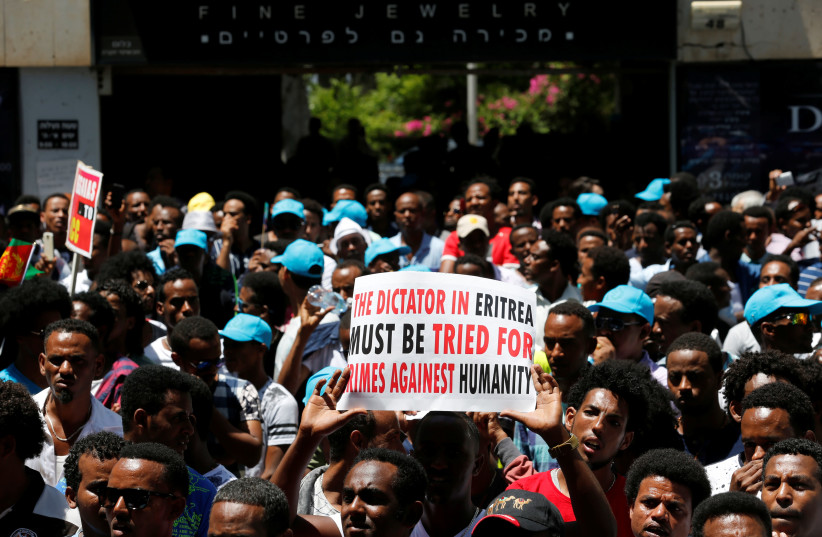Hotline for Refugees and Migrants filed a petition Wednesday to end endemic malpractice and misconduct at Israel’s Population and Immigration Authority office in Bnei Brak which has reportedly left hundreds of asylum-seekers without a visa due to negligence.
The Bnei Brak branch of Israel’s Population and Immigration Authority reopened suddenly and without warning after a six-month closure that left local immigrants unable to renew their visas – a critical form of identification for refugees and asylum-seekers, who typically do not have other forms of ID such as a driver’s license.
After the sudden and hasty reopening, the Hotline for Refugees and Migrants in Israel claims there have been long lines to enter the facility that have left many still unable to finally renew their expired visas – leading to messy, chaotic wait times without food, shelter or restrooms available to refugees.
Malpractice and mistreatment of asylum-seekers

According to the Hotline for Refugees and Migrants, an elderly asylum seeker from Eritrea with medical issues was summoned by the Population Authority to renew his visa five days after his visa expired. When he arrived, however, he was told he had to arrive at the facility on the day of his visa’s expiry and was sent to wait in the line intended for walk-in cases, even though he had a set date for his renewal.
"I suffer from kidney disease and as a result, I have to take medication regularly. I am insured by a national health fund and I receive my medication through the health fund,” the Eritrean man, identified as B.W., explained.
“A week ago I ran out of medication and went to the health fund to receive the medication but I was told that I could not do so without a valid visa [so] I had to buy the medicines without the participation of the health insurance fund in which I am insured. The medicines cost NIS 140, [which is] a large sum for me," B.W. continued.
B.W. is just one of many asylum-seekers who have been fired from their jobs, lost access to their bank accounts, and were left without their only identification document – a document that the Population Authority is obliged by law to issue to them.
“In the petition, which we submitted together with HIAS Israel and the Civil Rights Association, we demanded that the Authority allow asylum seekers to receive service in all its offices throughout the country so that they can renew their visas at the office closest to their place of residence, instead of the current situation where asylum seekers from all over the country are forced to come to the only office in Bnei Brak,” explained the Hotline for Refugees and Migrants.
“We also demanded that the Authority grant asylum seekers access to its existing system for calling appointments, a system that is currently available only to Israelis,” continued the Hotline for Refugees and Migrants, which filed the petition directly to Israel’s Population and Immigration Authority.
